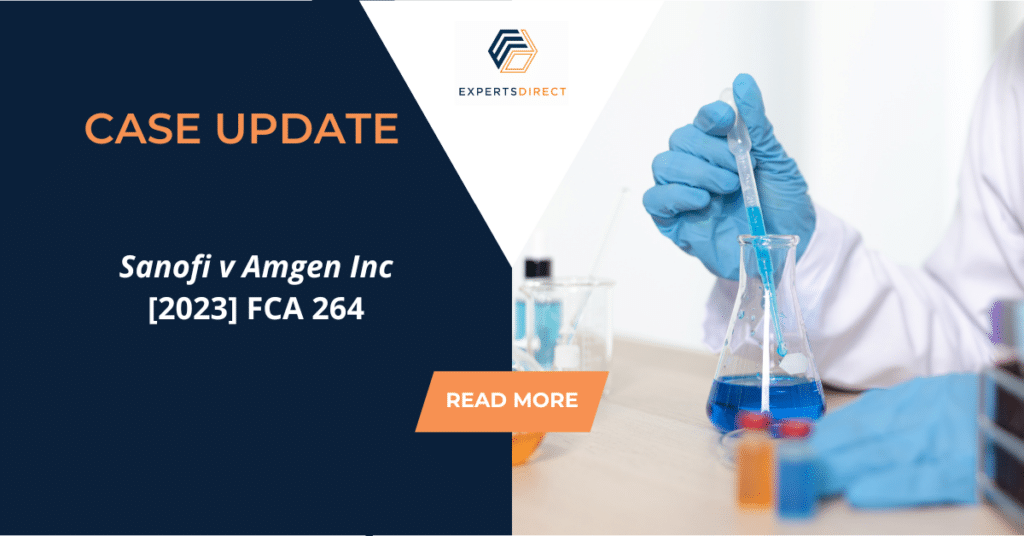Sanofi v Amgen Inc [2023] FCA 264
In this case, though the court observed that experimental evidence can be expensive and time consuming, with the potential to create a “trial within a trial”, it granted leave for presentation of experiments as expert evidence, provided the evidence was presented by affidavit in admissible form and complied with relevant procedural rules concerning expert evidence.
Background
This was an interlocutory application filed by Sanofi in an appeal it brought pursuant to s 60(4) of the Patents Act 1990 (Cth) from a decision of a delegate of the Commissioner of Patents directing that five standard patent applications filed by the respondent, Amgen, proceed to grant.
Expert evidence
Sanofi sought leave to rely on experiments conducted by its expert, Prof M, as experimental proof of a fact, pursuant to r 34.50(2)(b) of the Federal Court Rules 2011 (Cth) (FCR). It was common ground that r 34.50(1) of the FCR was not complied with. [41]
Nicholas J stated that experimental evidence can give rise to expensive and time consuming debates between expert witnesses, and has the potential to create a “trial within a trial” as to:
- the appropriateness of the methodology used;
- the conditions of the material and the facility used to conduct the experiment;
- the accuracy of any observations or measurements made; and
- the interpretation of the results.
Thus, it was incumbent on Sanofi to show that the experiments subject to the application for leave could rationally affect, either directly or indirectly, the assessment of the probability of the existence of a fact in issue in the proceeding as required by s 55 of the Evidence Act 1995 (Cth), and aligned with the overarching purpose of the just, quick and cheap resolution of the proceedings.[42]
Decision
Ultimately, the court granted leave to Sanofi to rely on Prof M’s experiments to the extent that those experiments were relevant to its case based on lack of clarity and what it called “lack of definition” in respect of the scope of the relevant claims in the standard patent applications. [46]
In granting leave, Nicholas J also warned that any evidence in chief to be given by Prof M in relation to his experiments must be by affidavit in admissible form, and must comply with any relevant procedural rules.
Key takeaways
- The danger of seeking to rely on experimental proof as evidence of fact is that it creates a “trial within a trial” and therefore undermines the overarching purpose of the just, quick and cheap resolution of proceedings.
- A party seeking to rely on experimental proof as evidence must apply for orders as contemplated by r 34.50 of the FCR.
- Experiments must be directly relevant to the matters upon which they are being relied on to prove.
Read the full decision here.
Follow and like our page for the most up-to-date cases affecting expert evidence.
